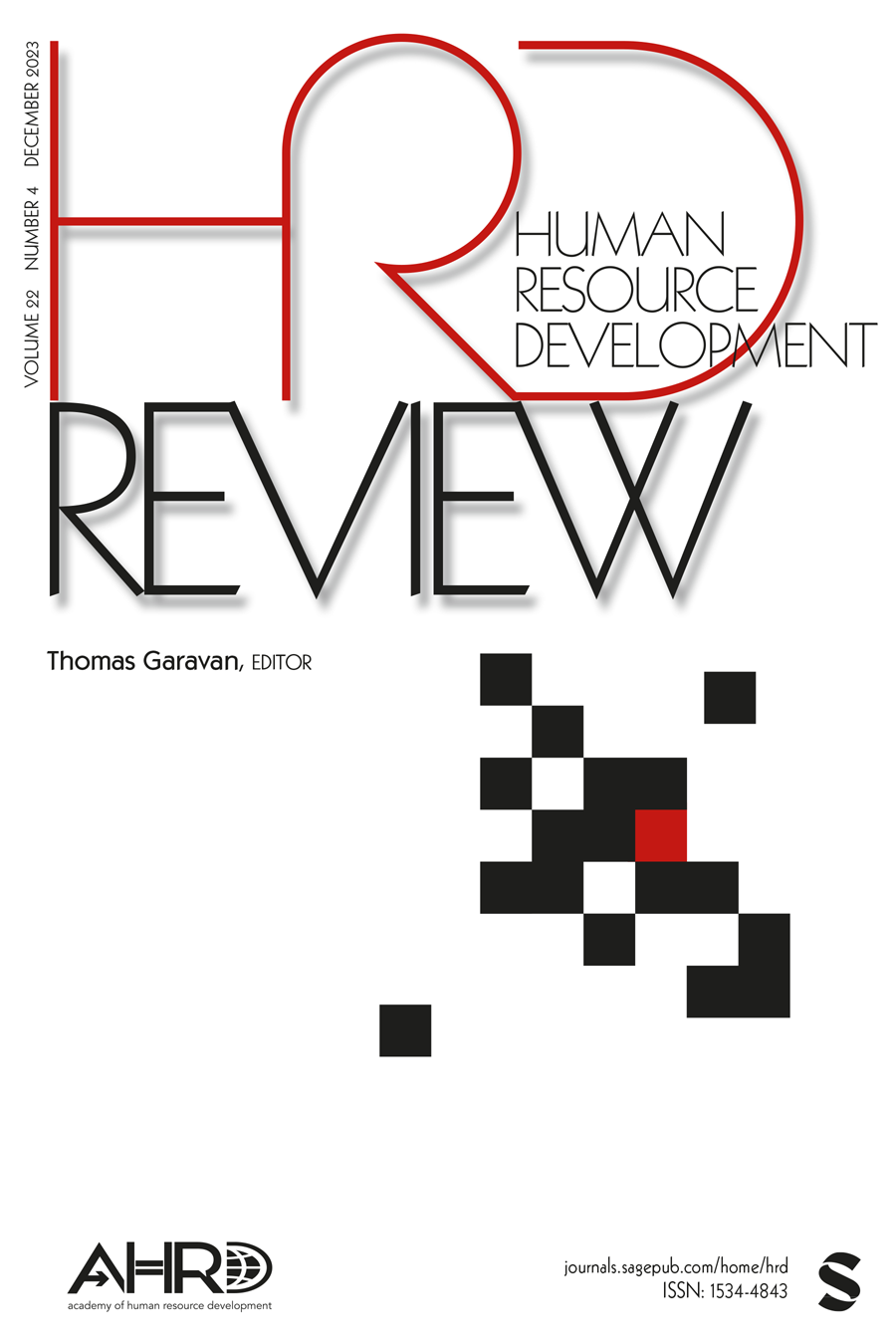The Ten Research Questions: An Analytic Tool for Critiquing Empirical Studies and Teaching Research Rigor
IF 4.6
3区 管理学
Q1 MANAGEMENT
引用次数: 4
Abstract
One of the most onerous tasks for research neophytes like students is deciphering the often complex and technical empirical research article and determining its scientific merit. With limited research method knowledge and experience designing and conducting research, the neophyte is left with little to draw upon when trying to understand the findings, whether standards of rigor were met, and if replication and application may be warranted. In particular, this lack of understanding can contribute much to students’ negative attitudes, perceptions, beliefs, and conceptions about research. This state of affairs is unfortunate because each can lessen the likelihood of subsequent engagement with the research literature, often at the cost of poorer student well-being (Pyhaltö et al., 2012), less timely graduation and greater attrition (Meyer et al., 2005, 2007). Because higher education is increasingly costly, and the need for talented social science researchers (e.g., human resource development [HRD] researchers) has never been greater, we cannot afford to allow the curious, but inexperienced to languish unnecessarily in their research endeavors (Earley, 2014; Tashakkori & Teddlie, 2003). Thus, proposing that one must think and act like a researcher to be a researcher, we must find ways to help learners methodically analyze existing research and enter the “research conversation” with authors of empirical research in one’s discipline and beyond (Chatterjee-Padmanabhan et al., 2019). The purpose of this article, then, is to help learners enter the research conversation by presenting an analytic tool for十个研究问题:批判实证研究和教学研究严谨性的分析工具
对于像学生这样的研究新手来说,最繁重的任务之一是解读往往复杂而技术性的实证研究文章,并确定其科学价值。由于有限的研究方法知识和设计和开展研究的经验,新手在试图理解研究结果时几乎没有什么可借鉴的,是否达到了严格的标准,以及是否可以保证复制和应用。特别是,这种理解的缺乏会在很大程度上导致学生对研究的消极态度、看法、信念和观念。这种情况是不幸的,因为每一种情况都会减少后续参与研究文献的可能性,往往以学生幸福感下降为代价(Pyhaltö等人,2012),不及时毕业和更大的流失率(Meyer等人,2005年,2007年)。由于高等教育的成本越来越高,对有才华的社会科学研究人员(如人力资源开发[HRD]研究人员)的需求从未像现在这样大,我们不能让那些好奇但缺乏经验的人在他们的研究努力中不必要地憔悴下去(Earley, 2014;Tashakkori & Teddlie, 2003)。因此,建议一个人必须像研究人员一样思考和行动,才能成为一名研究人员,我们必须找到方法来帮助学习者系统地分析现有的研究,并与本学科内外的实证研究作者进行“研究对话”(Chatterjee-Padmanabhan等人,2019)。因此,本文的目的是通过提供一个分析工具来帮助学习者进入研究对话
本文章由计算机程序翻译,如有差异,请以英文原文为准。
求助全文
约1分钟内获得全文
求助全文
来源期刊

Human Resource Development Review
MANAGEMENT-
CiteScore
9.60
自引率
17.20%
发文量
35
期刊介绍:
As described elsewhere, Human Resource Development Review is a theory development journal for scholars of human resource development and related disciplines. Human Resource Development Review publishes articles that make theoretical contributions on theory development, foundations of HRD, theory building methods, and integrative reviews of the relevant literature. Papers whose central focus is empirical findings, including empirical method and design are not considered for publication in Human Resource Development Review. This journal encourages submissions that provide new theoretical insights to advance our understanding of human resource development and related disciplines. Such papers may include syntheses of existing bodies of theory, new substantive theories, exploratory conceptual models, taxonomies and typology developed as foundations for theory, treatises in formal theory construction, papers on the history of theory, critique of theory that includes alternative research propositions, metatheory, and integrative literature reviews with strong theoretical implications. Papers addressing foundations of HRD might address philosophies of HRD, historical foundations, definitions of the field, conceptual organization of the field, and ethical foundations. Human Resource Development Review takes a multi-paradigm view of theory building so submissions from different paradigms are encouraged.
 求助内容:
求助内容: 应助结果提醒方式:
应助结果提醒方式:


